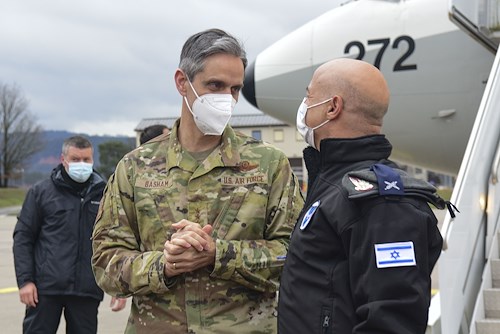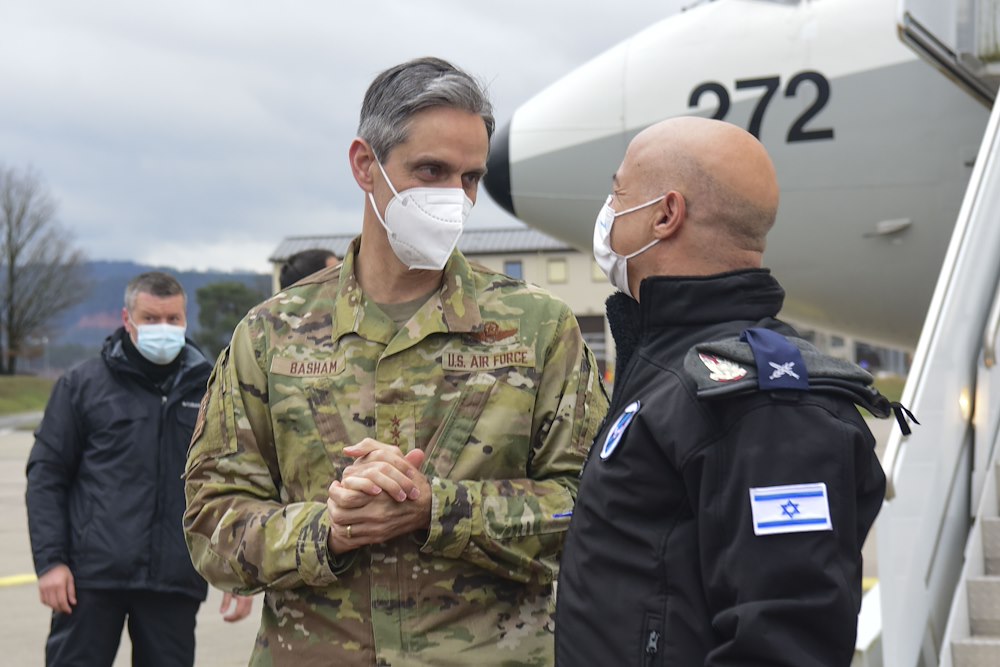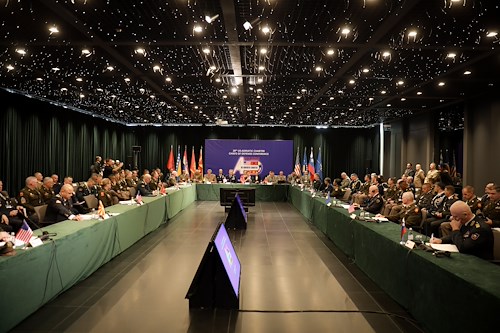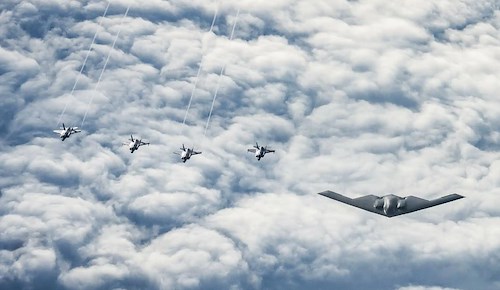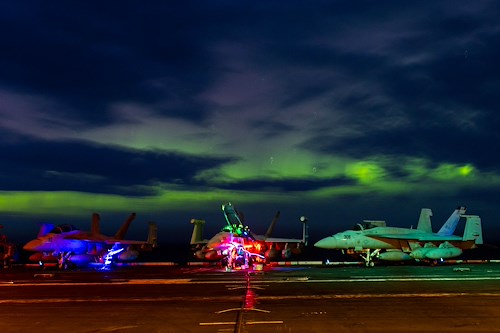Gallery contains 2 images
×
Photo 1 of 2
210207-F-LI951-066
U.S. Air Force Lt. Gen. Steven Basham, U.S. Air Forces in Europe and Air Forces Africa deputy commander, greets Brig. Gen. Doron Gavish, Israel Air Defense Force Active commander, after arriving at Ramstein Air Base, Germany Feb. 7, 2021. The Israeli Defense Force delegation will participate in Juniper Falcon 2021 which is a long-standing series of cooperative exercises. (U.S. Air Force photo by Master Sgt. Darnell T. Cannady)
Photo 2 of 2
Exercise Juniper Falcon 21
Photo by: U.S. European Command Public Affairs
The first-ever virtual, joint U.S. Israel ballistic missile defense exercise, Juniper Falcon 2021, concluded Feb. 12 following two weeks of military training focused on enhancing the defense of Israel through combined coordination, shared capabilities, and continued military relationships.
Approximately 500 U.S. and Israeli military personnel participated from various sites across the U.S., Israel, and Germany. The JUNIPER FALCON exercise series is currently held every two years during odd-numbered years with the last iteration taking place in February 2019.
Exercise participants from both nations were able to achieve their goal of enhancing the cooperative defense of Israel using both virtual and limited in-person engagements. Throughout the exercise, participants were tested on a variety of computer-assisted simulations ranging from ballistic-missile defense, to logistic resupply and foreign-humanitarian assistance.
“It was truly incredible what the combined team was able to accomplish,” said Lt. Gen. Steven Basham, U.S. Air Forces in Europe-Air Forces Africa deputy commander and Joint Task Force-Israel commander. “Defense is a full time mission and it involves an ability to flex. This year I saw first-hand the efforts on both sides to not only accomplish our mission, but keep health safety a priority while doing so. There is no doubt that if called upon, the relationships we have built will stand strong and allow us to overcome any obstacle.”
The exercise provided an opportunity to implement and continue the design of a new concept of deployment for U.S. personnel in the support of the defense of Israel. A segmented “forward” and “rear” deployment effort was implemented for the first time. This concept allowed U.S. personnel to tailor the number of people and equipment packages to match requirements in the field versus the previous all-or-none deployment structure.
“Our team was able to practice like we fight and look at how we can stay flexible through any potential challenge,” stated Capt. Zachary Gooch, who serves in Joint Task Force-Israel’s Medical Logistic Coordination Cell. “Doing this with our counterparts is what really strengthens the response. The forward and main concept of deployment allows my team to get the right resources when and where we need them.”
While exercise Juniper Falcon is driven by the regional dynamics of the Middle East, it is not related to any specific events or developments. Planning for JF21 began in early 2020 as part of regularly scheduled training between U.S. European Command and the Israel Defense Forces.
Prior to the start of the exercise, participants were tested for COVID-19 and required to have negative results before joining the virtually connected exercise environments. All in-person JF21 participants were required to adhere to strict mitigation measures, to include wearing masks, remaining physically distant, washing hands, using hand sanitizer and cleaning workstations before and after use.
“Though there were a few times we thought about postponing or cancelling the exercise, both militaries take great pride in our profession and any opportunity to strengthen capabilities,” stated Lt. Col. Michael Dunn, Joint Task Force-Israel deputy chief of staff. “We worked closely with our Israeli partners to come up with innovative ways to get the mission done. A special thanks goes out to everyone who helped set up a safe and challenging opportunity and to our Israeli counterparts who graciously flexed during the exercise along with us.”
-30-
About USEUCOM
U.S. European Command (USEUCOM) is responsible for U.S. military operations across Europe, portions of Asia and the Middle East, the Arctic and Atlantic Ocean. USEUCOM is comprised of more than 64,000 military and civilian personnel and works closely with NATO Allies and partners. The command is one of two U.S. forward-deployed geographic combatant commands headquartered in Stuttgart, Germany.

